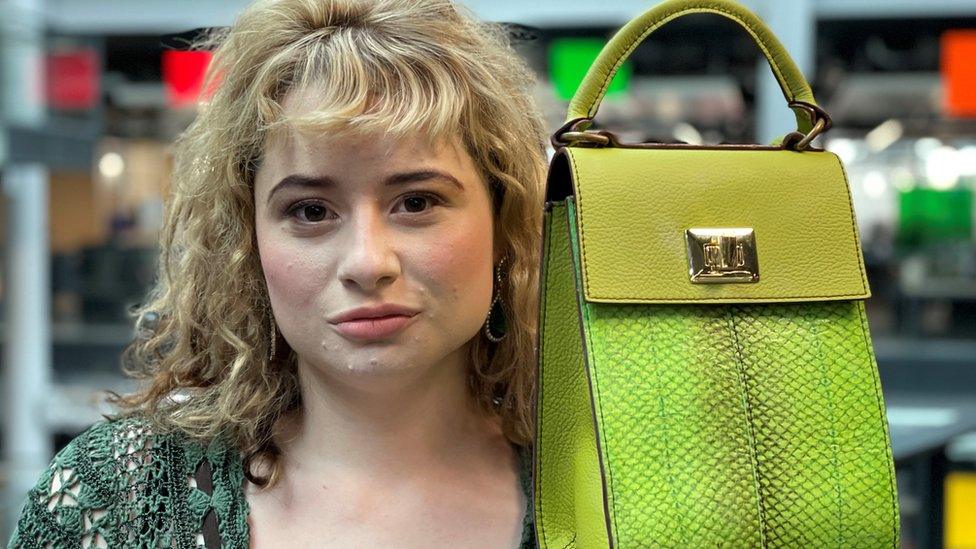Jersey islanders supporting the sustainable movement
- Published
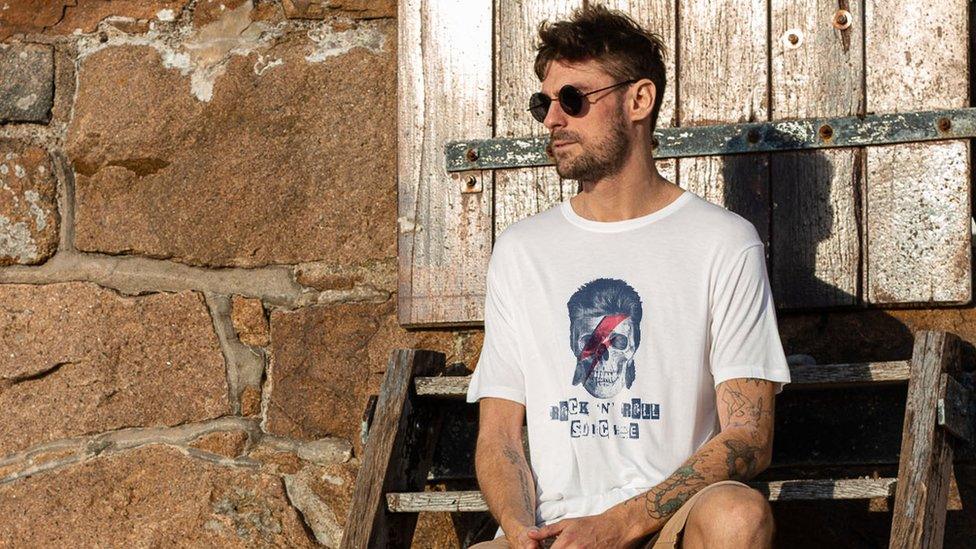
A sustainable clothing company in Jersey said it aimed to "produce organic materials ethically and fairly"
Have you ever wondered what impact your fashion choices have on the world?
Fashion is the third-largest manufacturing industry in the world producing up to 10% of global carbon emissions, Climate Jersey, external reported.
"Fast fashion" is a major contributor to greenhouse gases, water and air pollution and creates a lot of waste.
Some islanders have tried to be more sustainable by shopping second hand, while others have been inspired to create their own fashion businesses.
Amelia Godel creates jewellery using only second-hand materials.
Her online company Jewelz by Mealz was born during the island's second Covid pandemic lockdown in 2021 in a bid to create "wearable art out of pre-loved and existing treasures".
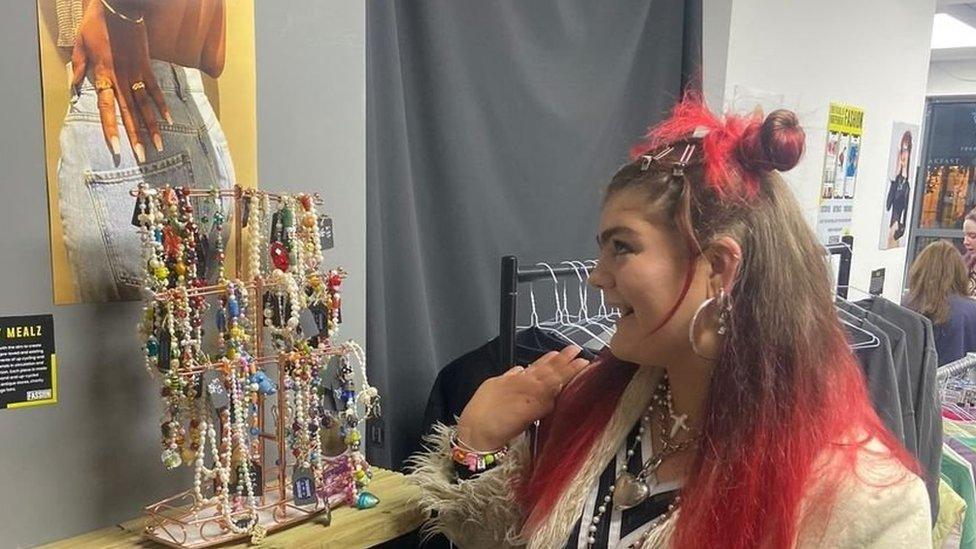
Amelia Godel started Jewelz by Mealz by using pre-owned items and jewellery her grandmother gave her from the 1980s
"I was just inspired by other jewellery that I had seen that was kind of similar but way out of my price range, and I just wanted to have a go at making something for myself," she said.
Miss Godel described sourcing her materials as a "scavenger hunt", finding them on eBay, charity shops and car boot sales.
She said: "I just really liked the idea of making new wearable treasures out of materials that are already in circulation instead of contributing to fast fashion."
To tackle the impact it has on the climate, the European Union proposed clothes, furniture and smartphones sold in Europe must be longer-lasting and easier to repair.
Jersey targets have been set for 2030 and 2035 for the island to become net zero by 2050, in line with the Paris Agreement on climate change.
Climate Jersey, the government department focused on reaching these net zero targets, said in 2019, 580 tonnes of textiles were collected for recycling in Jersey.
"We estimate that the same amount of unwanted textiles were thrown in the bin," it said.
It said the amount thrown away as rubbish each year "weighs the same as the entire Liberty Bus fleet in Jersey", which is made up of 12 double decker buses and 65 single deck buses.

The "home grown" company Shelljon creates clothes from bamboo cotton
'Change the world'
Missguided, a UK fast fashion brand, collapsed in May 2022 after a "softening" consumer confidence, with one marketing expert saying shoppers now cared more about sustainability.
Jersey clothing company Shelljon launched in 2020 after four years of searching for "the right supplier", sourcing its clothing from a Fairtrade workshop in Bali and printing its designs in Jersey.
The family-run company uses water-based inks and packages its products in compostable bags, only printing when an order is placed to save on waste.
Darren Forbes said its work was "a step closer to a cleaner, more sustainable world".
"It's quite easy to buy T-shirts like on mass and not even think about where you're getting them from, and then I think the idea was to try and find a place where you can where we can have sustainable T-shirts and you know not just have these mass produced kind of shirts," he said.
Shelljon make its clothing out of bamboo, which is antibacterial, UV protective, moisture wicking and odour free.
"It's such a great source and we really believe it has the power to change the world," Mr Forbes said.
He said he thought people in Jersey were heading in the right direction in regards to becoming more sustainable.
"I think, just a key point is kind of just questioning your buying habits, it's good to question it and consider the sources of the product and kind of where it's come from and everything," he said.
Climate Jersey said fast fashion had a "high impact on the world's water supply".
In an online survey of 100 Jersey islanders, 96% said they would shop at sustainable clothes shops if they were on the St Helier high street.
Town centre manager Connor Burgher said its smaller town charity shops and boutiques were moving in the right direction when acting sustainably.
He said: "St Helier has lots of sustainable opportunities, ranging from high end boutiques... to our fabulous charity shops.
"It's not just retail that encourages the use of sustainable products. Most of our hospitality offerings offer sustainable products such as paper straws or recycled, reusable packaging."
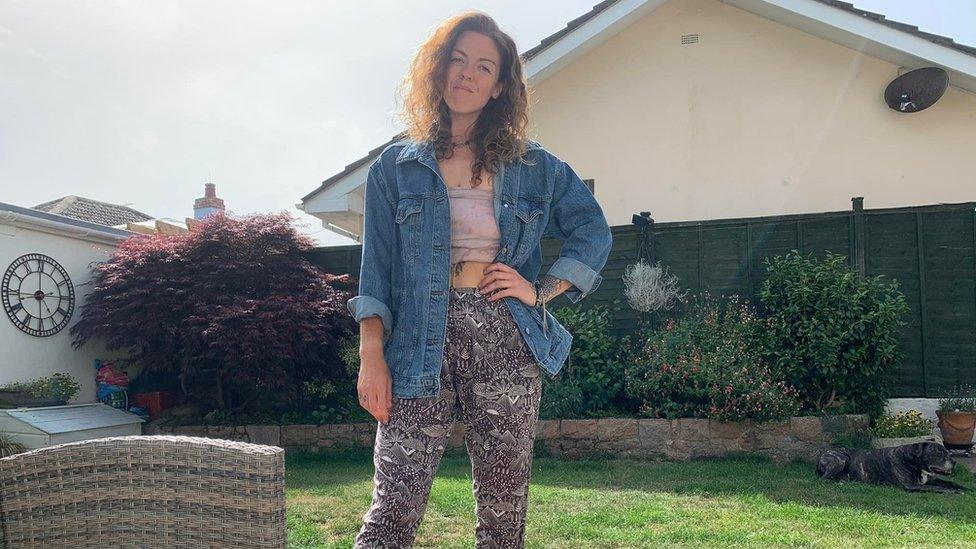
Kelly Williams says she shops second hand for economic and environmental reasons
Jersey dog walker Kelly Williams, 26, has bought second-hand clothes from charity shops and online markets since she was 15.
She said: "It's economically better, you can also find brand new clothing for silly cheap prices, I'd rather the money was going to a charity.
"Even if it's just something quirky and something different, I like different fashion so it's really nice find something even if it originally came from an older woman and I'm wearing it now, just recycling clothes."
Miss Williams hoped the future of Jersey's high street would host more second-hand clothing and charity shops.
.Follow the 30 wear rule - only buy a new item of clothing if you will wear it "at least 30 times"
.Wash your clothes less often to reduce the amount of microplastics in the ocean
.Buy second hand clothing, donate or resell
.Rewear what you already have or upcycle it by changing it into something new
Climate Jersey said the island and the rest of the world still had a long way to go in terms of sustainability.
"With current technologies, it would take 12 years to recycle what the fast fashion industry creates in just 48 hours. We must work to reduce, reuse and then recycle," it said.

Follow BBC Jersey on Twitter, external and Facebook, external. Send your story ideas to channel.islands@bbc.co.uk, external.
- Published3 May 2022

- Published30 March 2022
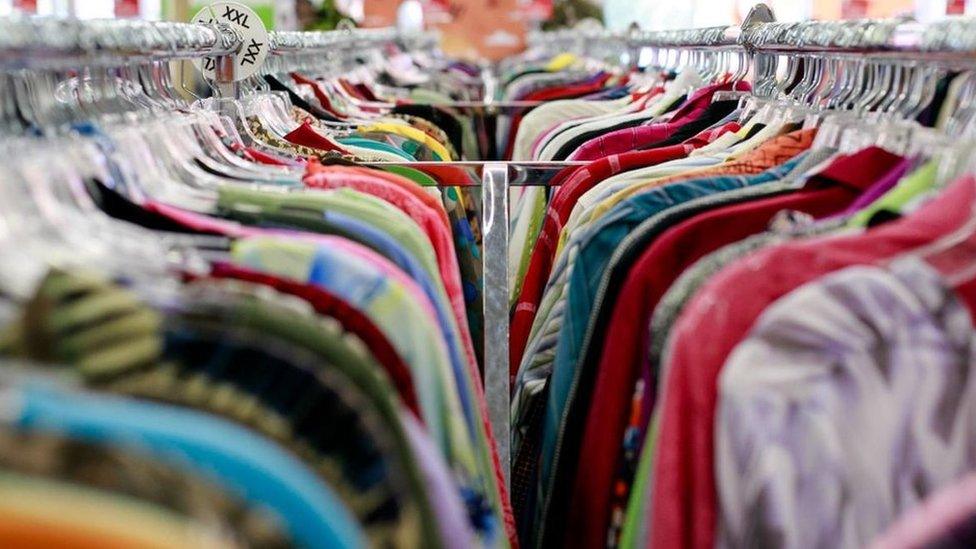
- Published13 March 2022
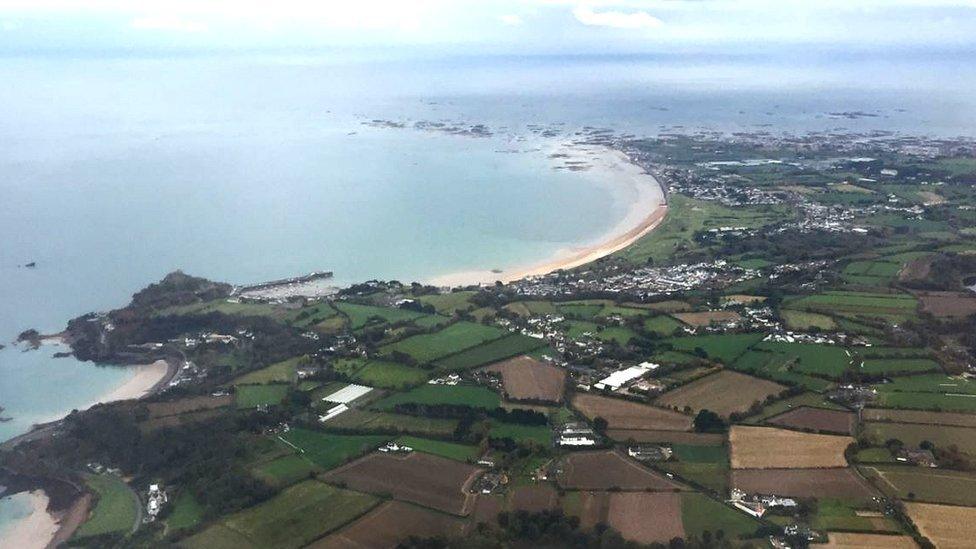
- Published28 October 2021
